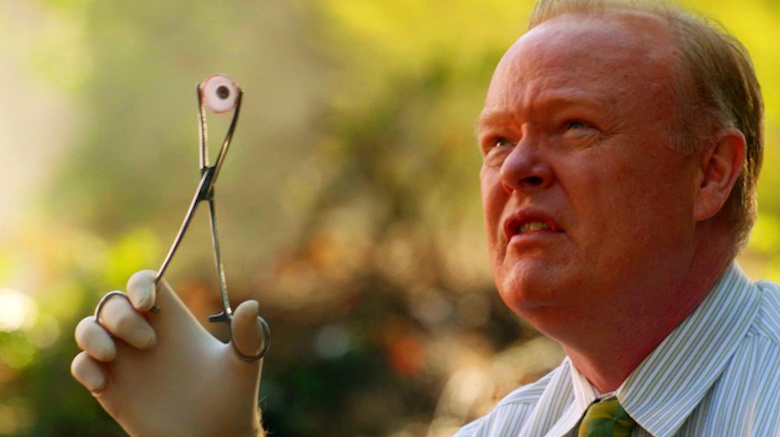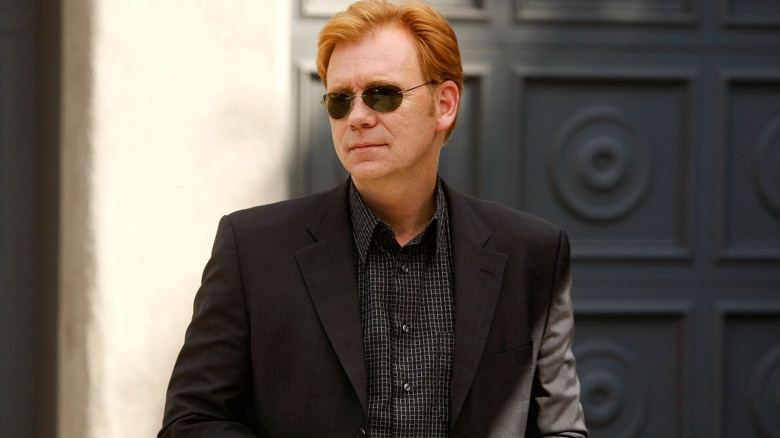The Real Reason CSI: Miami Was Canceled
CSI: Crime Scene Investigation wasn't just a hit series, it was a cultural phenomenon that redefined the TV crime procedural for the 21st century. The show's first spinoff, CSI: Miami, gave viewers more sexy locations and sexy cops solving crimes with high-tech science equipment—and debuted with a big splash during the fall of 2002. As big a hit as the original show, CSI: Miami resuscitated star David Caruso's career and was still pulling in viewers when it was abruptly cancelled after 10 seasons—with no big final wrap-up episode—in 2012. Here's what went wrong.
The ratings had slipped significantly
In the 2011-12 TV season, which would prove to be its last year on the air, CSI: Miami ranked No. 27 out of all shows on broadcast TV. That's pretty good...but not so good for CBS, the most-watched network. It also represented a steady decline for the once-mighty crime drama. In its debut season, CSI: Miami ranked No. 11, and then spent four years in the top 10 before starting an annual ratings slide. One more year on the air, and it would've dropped out of the top 30 completely. Also not helping was its Sunday night timeslot: despite a lead-in from The Good Wife, CSI: Miami literally got killed in the ratings by NBC's Sunday Night Football.
It was getting too expensive to produce
Ironically, the longer a show runs and the more stable of a ratings draw it is, the more it becomes a target for cancellation, because long-running shows are more expensive to produce than newer ones. The longer a show stays on the air, the more contracts for all cast and crew members have to be renegotiated and re-signed, and various union laws require major pay raises for everyone involved. Sometimes, it's worth the production company and network's money—The Big Bang Theory, for example, has a main cast that earns $1 million per episode as it enters its tenth season—but that's the exception to the rule. Generally, the longer a show airs, their ratings decline—just like CSI: Miami. That means a network is paying more money for a show less people watch, and it's just not cost-effective.
It wasn't competitive anymore
At the same time it canceled CSI: Miami, CBS renewed the other CSI spinoff on the air at the time, CSI: New York. And CSI: Miami had better overall ratings than its Gotham-based counterpart. What gives? CSI: New York had helped turn the little-watched TV wasteland of Friday nights into a big draw for CBS. It brought in fewer viewers (but only a little) than CSI: Miami, but they were stellar, relatively speaking, for Friday night, and trailed only its lead-out, Blue Bloods, in the ratings. So CSI: New York lived because it was a big fish in a smaller pond, while CSI: Miami got lost in the shuffle.
It wasn't set in New York City
CBS has a long history of keeping shows on the air because it's cost effective to make them in pre-existing remote production facilities. For example, in 1980, the Hawaii-set Magnum, P.I. made it to air in part because the network could use the studios and crew they'd had in the area since 1968, for the production of Hawaii Five-O. Similarly, in 2012 CBS had a string of New York-based cop shows in production, and wanted to present them all in a single three-hour block on Friday nights (including CSI: New York, Blue Bloods, and CSI: Miami's ultimately short-lived replacement NYC-22). With those shows all produced in and around New York, there wasn't room left—either in the budget or the schedule—for a show set (but not filmed) in the far-off city of Miami.




